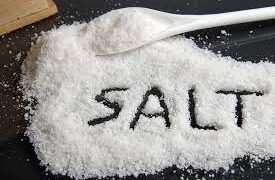Dealing with tooth pain can be excruciating and disruptive to everyday life. Whether it’s a dull ache or a sharp, throbbing sensation, tooth pain can make it difficult to eat, sleep, and concentrate.
Understanding the causes and symptoms of tooth pain is crucial in finding relief and seeking appropriate treatment. In this comprehensive guide, we will explore the various causes of tooth pain, home remedies for instant relief, insights from dental experts, and lifestyle changes to prevent tooth pain.
Understanding Tooth Pain: Causes and Symptoms
Before we delve into the remedies and insights, let’s first understand the common causes and symptoms of tooth pain. Tooth pain can stem from various factors, including dental decay, gum disease, tooth fractures, abscesses, and tooth sensitivity.
Common causes of tooth pain
Dental decay, also known as cavities, is one of the leading causes of tooth pain. When bacteria in the mouth produce acids that erode tooth enamel, it leads to the formation of cavities. Gum disease, such as gingivitis or periodontitis, can also cause tooth pain as the infection spreads to the tissues supporting the teeth. Tooth fractures, whether due to trauma or biting down on hard objects, can expose the sensitive inner layers of the tooth, resulting in pain.
Additionally, tooth abscesses, which are pockets of pus caused by bacterial infection, can cause severe tooth pain. Lastly, tooth sensitivity, often caused by exposed dentin or enamel erosion, can cause discomfort or pain when exposed to hot, cold, or sweet stimuli.
Symptoms of tooth pain
When experiencing tooth pain, it’s important to pay attention to the accompanying symptoms. Common symptoms of tooth pain include sensitivity to hot or cold temperatures, pain when biting down or chewing, swollen or tender gums, throbbing pain, and visible signs of infection such as pus or swelling around the tooth.
Home Remedies for Tooth Pain Relief
While it’s essential to consult a dentist for a proper diagnosis and treatment plan, there are several home remedies that can provide temporary relief from tooth pain. These natural remedies aim to reduce inflammation, numb the affected area, and provide a soothing effect.
Natural remedies for instant relief
Cloves are known for their numbing properties, making them an effective natural remedy for tooth pain. Applying a few drops of clove oil directly onto the affected tooth or chewing on a whole clove can provide temporary relief. Saltwater rinses are another simple and inexpensive home remedy for tooth pain. Mix half a teaspoon of salt in a glass of warm water and rinse your mouth for 30 seconds, focusing on the painful area. The saltwater rinse can help reduce inflammation and kill bacteria. Applying a cold compress to the outside of the cheek near the painful tooth can also provide temporary relief by numbing the area.
Tried and tested home remedies
Garlic has antimicrobial and analgesic properties, which can help alleviate tooth pain. Crush a garlic clove, mix it with a pinch of salt, and apply the mixture to the affected tooth. Keep in mind that garlic can be strong and may cause a burning sensation, so use this remedy with caution. Another popular home remedy is using a cotton ball soaked in vanilla extract. Apply the cotton ball to the painful tooth for several minutes to numb the area and provide relief. Chewing on a piece of raw onion can also help reduce tooth pain due to its antimicrobial properties. However, be prepared for the strong taste and lingering odor. While these home remedies can offer temporary relief, it’s crucial to seek professional dental care for a long-term solution.
Dental Expert’s Insights: Professional Tips for Tooth Pain Relief
When it comes to finding long-term relief from tooth pain, dental experts provide valuable insights and recommendations. These professionals have extensive knowledge and experience in diagnosing and treating various dental conditions.
Preventive dental care
The best way to prevent tooth pain is through regular dental check-ups and practicing good oral hygiene. Dental experts recommend visiting the dentist every six months for routine cleanings and examinations. Regular cleanings can remove plaque and tartar buildup, reducing the risk of dental decay and gum disease. Additionally, maintaining a proper oral hygiene routine, including brushing twice a day, flossing daily, and using mouthwash, can help keep tooth pain at bay. Dental experts also stress the importance of using a soft-bristled toothbrush and replacing it every three to four months.
Effective treatments for tooth pain
When home remedies fail to provide relief, dental experts have a range of treatments available to alleviate tooth pain. The treatment method depends on the underlying cause of the pain. For dental decay, dentists may recommend fillings, crowns, or root canal therapy. In cases of gum disease, deep cleaning procedures such as scaling and root planing may be necessary. Tooth fractures can be treated with dental bonding, dental veneers, or dental crowns. For severe tooth abscesses, dentists may need to perform root canal therapy or extract the affected tooth. Dental experts tailor the treatment plan to each individual’s needs, ensuring effective and lasting relief from tooth pain.
Lifestyle Changes to Prevent Tooth Pain
Prevention is always better than cure, and making simple lifestyle changes can go a long way in avoiding tooth pain and maintaining good oral health. In addition to regular dental check-ups and proper oral hygiene practices, certain lifestyle habits can promote dental health and prevent tooth pain.
Oral hygiene practices for a healthy mouth
Incorporating proper oral hygiene practices into your daily routine is essential for preventing tooth pain. Brush your teeth for two minutes twice a day using fluoride toothpaste. Make sure to brush all tooth surfaces, paying extra attention to the gumline. Flossing once a day helps remove plaque and food particles from between your teeth and along the gumline where toothbrush bristles cannot reach. Lastly, using an antimicrobial mouthwash can kill bacteria and freshen your breath.
Dietary habits that promote dental health
Your diet plays a crucial role in maintaining good oral health. Limiting sugary and acidic foods and drinks can help prevent tooth decay and erosion, reducing the risk of tooth pain. Opt for a balanced diet rich in fruits, vegetables, lean proteins, and whole grains. Drinking plenty of water throughout the day can also promote saliva production, which helps rinse away food particles and neutralize acids in the mouth.
In conclusion, tooth pain can be a debilitating experience, but with the right knowledge and tools, it is possible to find relief and prevent future episodes. By understanding the causes and symptoms of tooth pain, utilizing home remedies for temporary relief, seeking insights from dental experts, and implementing lifestyle changes, individuals can take control of their oral health and enjoy a pain-free smile.
FAQ
Question: What are the common causes of tooth pain? – Tooth pain can be caused by dental decay, gum disease, tooth fractures, abscesses, and tooth sensitivity.
Question: What are the symptoms of tooth pain? – Common symptoms of tooth pain include sensitivity to hot or cold temperatures, pain when biting down or chewing, swollen or tender gums, throbbing pain, and visible signs of infection such as pus or swelling around the tooth.
Question: What are some home remedies for instant relief from tooth pain? – Home remedies for instant relief from tooth pain include using clove oil, saltwater rinses, and cold compresses. Garlic, vanilla extract, and raw onion can also provide temporary relief from tooth pain.
Question: What are some preventive measures for tooth pain? – Regular dental check-ups, good oral hygiene, and soft-bristled toothbrushes are important preventive measures for tooth pain.
Question: What dental treatments are recommended for tooth pain? – Dental experts may recommend treatments such as fillings, crowns, root canal therapy, scaling, root planing, dental bonding, and extraction, depending on the cause of tooth pain.
Question: What oral hygiene practices can help prevent tooth pain? – Incorporating proper oral hygiene practices into your daily routine, including brushing twice a day, flossing daily, and using mouthwash, can help prevent tooth pain.
Question: What dietary habits can promote dental health? – Limiting sugary and acidic foods and drinks, and opting for a balanced diet rich in fruits, vegetables, lean proteins, and whole grains can promote dental health and help prevent tooth pain.
Question: How can individuals take control of their oral health and prevent tooth pain? – By understanding the causes and symptoms of tooth pain, utilizing home remedies for temporary relief, seeking insights from dental experts, and implementing lifestyle changes such as proper oral hygiene practices and a balanced diet, individuals can take control of their oral health and enjoy a pain-free smile.







































































